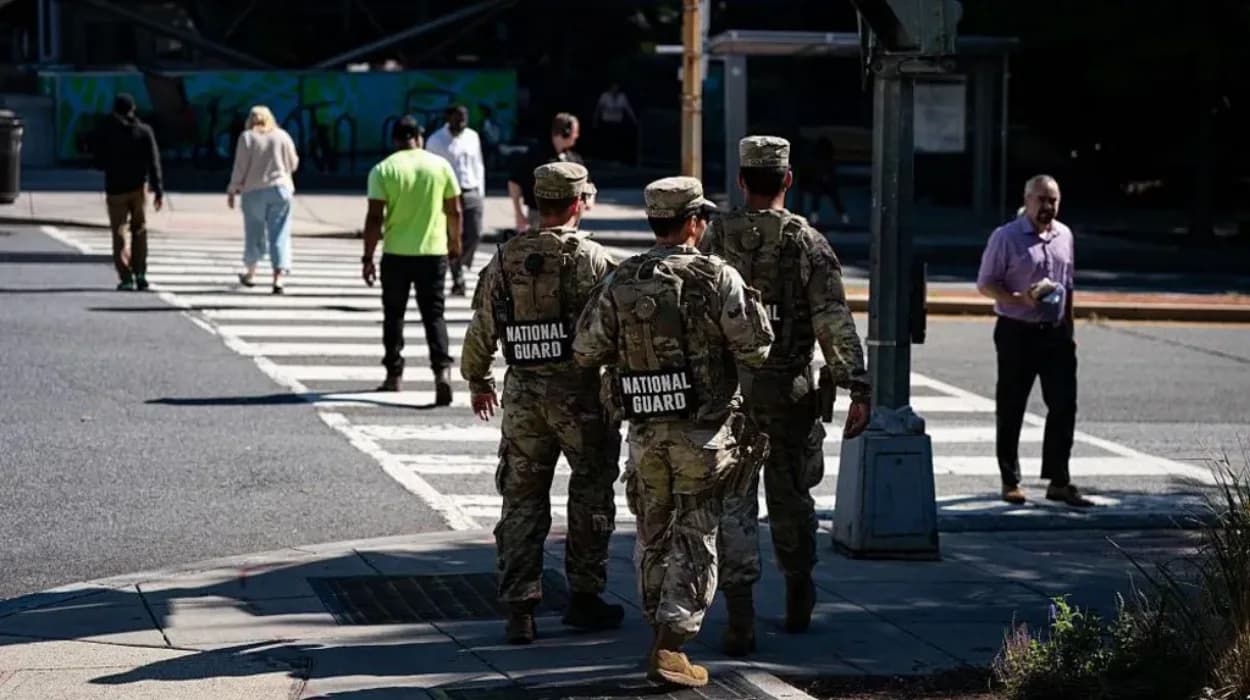An appeals court ruled that President Donald Trump can deploy approximately 200 National Guard troops to Portland, Oregon, overruling a lower court’s injunction, despite objections from local and state officials. However, another restraining order remains in place, still limiting immediate troop deployment pending further legal proceedings.
Appeals Court Gives Green Light for Deployment
A divided panel of the U.S. Ninth Circuit Court of Appeals
ruled on Monday that President Donald Trump has the legal authority to
federalize the Oregon National Guard and deploy troops to Portland, Oregon. The
two-to-one decision overturned a lower court’s temporary restraining order that
had blocked this troop deployment. The court majority stated that after
reviewing the preliminary record, it is likely that the president lawfully
exercised his statutory authority by federalizing troops.
Judges Ryan Nelson and Bridget Bade, both appointed by
Donald Trump, authored the majority opinion, which concluded the president’s
powers were not exceeded in this case. However, Judge Susan Graber, appointed
by President Bill Clinton, dissented, expressing concerns that a second
restraining order blocking troop deployment to Oregon still remains in effect
and should be respected.
Two Restraining Orders Complicate Deployment
This appeals court ruling lifts only one of two temporary
restraining orders issued by U.S. District Judge Karin Immergut. The first
injunction prohibited the federalization of Oregon National Guard troops, which
the appeals court has now overturned. However, a second restraining order, also
issued by Judge Immergut, remains active and prevents the deployment of any
federalized National Guard personnel into Oregon, regardless of their state
origin.
Following the appeals court decision, the Justice Department
urged Judge Immergut to remove the second restraining order, arguing that it
lacks legal basis and that the president’s troop deployment decisions should
not be questioned by the judiciary.
Background: Why Deploy National Guard in Portland?
Portland has been a focal point of protests, especially near
the Immigration and Customs Enforcement (ICE) facility in South Portland, which
has faced prolonged demonstrations since June. While the majority of protests
have been peaceful, some incidents resulted in criminal charges, and federal
officials cite disruptions severe enough to close the facility for three weeks
during the summer.
President Trump labelled Portland as “war-ravaged” on social media, stating it was
“under siege from attack by Antifa and other domestic terrorists”
and insisted on deploying troops to protect federal properties and
agents, including those enforcing immigration laws. The Trump administration
federalized 200 members of the Oregon National Guard on September 28, prior to
the lower court rulings.
Responses from Officials and Legal Analysts
Oregon Governor Tina Kotek strongly opposed the deployment, describing it as “unwanted” and “unneeded,” warning that allowing the president such unilateral power to place state soldiers on city streets “without almost any justification” risks a dangerous precedent. Oregon Attorney General Dan Rayfield remarked,
“We are on a dangerous path in America.”
The White House praised the appeals court ruling, calling
the lower court injunction “unlawful and incorrect.” The U.S. Northern Command,
overseeing the federalized guardsmen, noted that while aware of the ruling,
troops in Portland were not currently undertaking operational activities as legal
matters continue.
Legal experts highlight that the ruling underscores
contentious debate over the president’s authority to deploy National Guard
troops domestically absent extreme conditions such as a foreign invasion,
rebellion, or the inability of regular federal law enforcement to uphold laws.
Critics argue the deployment is a disproportionate response to predominantly
peaceful protests.
Wider Context of National Guard Deployments
The ruling aligns with broader efforts by the Trump
administration to mobilize National Guard units in several Democratic-led
cities, including Los Angeles, Washington D.C., and Chicago, purportedly to
protect federal law enforcement operations and address public safety concerns
amid ongoing civil unrest.
Defense Secretary Pete Hegseth’s memo in September authorised National Guard troops to be stationed in areas where protests were “occurring or likely to occur” to assist federal agents enforcing immigration policies. This policy followed statements by President Trump pledging to deploy “all necessary troops” to safeguard federal installations against what he described as “domestic terrorists.”
Despite the recent appeals court victory for the Trump administration, the second restraining order remains a significant legal barrier to immediate troop deployment. The Justice Department’s request to lift this injunction is pending before Judge Immergut, and the Ninth Circuit is considering whether a larger panel of judges should rehear the case. Meanwhile, city and state officials are calling for further judicial review to prevent what they see as federal overreach.
The outcome of this ongoing legal battle will likely set a precedent for the extent of presidential authority over state National Guard forces and the acceptable conditions for federal troop deployment within U.S. cities.
